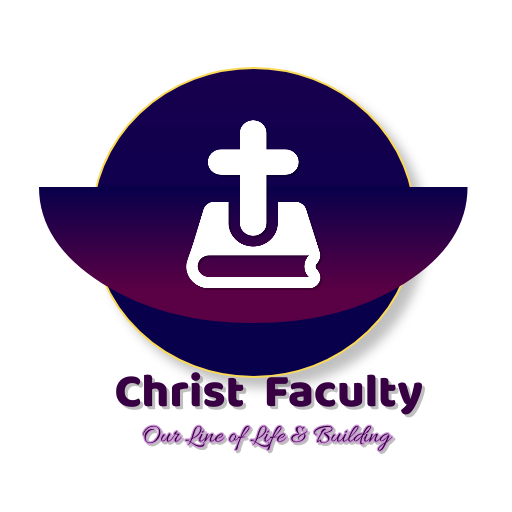Course Title: Apologetics
Course Description:
Apologetics is the discipline of defending the Christian faith through reasoned arguments and evidence. This course provides an in-depth exploration of the biblical, philosophical, and historical foundations of apologetics. Students will learn to articulate and defend the core tenets of Christianity against objections and challenges from other worldviews, religions, and secular perspectives. Through studying classical and contemporary approaches, the course aims to equip students with the skills to engage in thoughtful and respectful dialogue with skeptics, seekers, and believers alike. Emphasis is placed on understanding common objections to the Christian faith and developing effective strategies for communicating the truth of the Gospel in various contexts.
Course Overview:
- Duration: Typically one semester (12-16 weeks)
- Format: Lectures, readings, discussions, debates, and practical exercises
- Prerequisites: None, though a basic understanding of Christian doctrine is beneficial
- Target Audience: Theology students, church leaders, Christian educators, and anyone interested in defending and articulating their faith
Course Objectives:
By the end of this course, students will be able to:
- Understand the Biblical Basis for Apologetics:
- Identify key scriptural passages that mandate and model the defense of the Christian faith.
- Explain the role of apologetics in the life of a believer and the mission of the Church.
- Explore Major Apologetic Methods and Approaches:
- Compare and contrast classical, evidential, presuppositional, and cumulative case apologetics.
- Evaluate the strengths and weaknesses of different apologetic approaches.
- Defend the Core Doctrines of Christianity:
- Articulate reasoned defenses for key Christian beliefs, including the existence of God, the reliability of the Bible, the resurrection of Jesus, and the problem of evil.
- Address common objections and misconceptions about Christianity from atheistic, agnostic, and other religious perspectives.
- Develop Skills in Apologetic Communication:
- Engage effectively in apologetic dialogue with a variety of audiences, including skeptics, seekers, and fellow believers.
- Practice responding to questions and challenges with clarity, humility, and respect.
- Apply Apologetic Principles in Contemporary Contexts:
- Analyze current cultural, scientific, and philosophical trends that impact the perception of Christianity.
- Develop strategies for addressing contemporary issues such as relativism, pluralism, and the intersection of faith and science.
Course Outline:
Week 1: Introduction to Apologetics
- Definition and purpose of apologetics
- Biblical mandate for apologetics: 1 Peter 3:15, Jude 1:3, Acts 17
- Historical overview of apologetics from the early church to the present
Week 2: Apologetic Methodologies
- Classical Apologetics: Logic, evidence, and the cosmological argument
- Evidential Apologetics: Historical evidence and the resurrection
- Presuppositional Apologetics: Worldview analysis and the role of faith
- Cumulative Case Apologetics: Combining arguments for a holistic defense
Week 3: The Existence of God: Classical Arguments
- The Cosmological Argument: Cause and effect, and the beginning of the universe
- The Teleological Argument: Design and fine-tuning of the universe
- The Moral Argument: Objective moral values and duties
- The Ontological Argument: The concept of a maximally great being
Week 4: Responding to Atheism and Agnosticism
- Common atheistic objections: The problem of suffering, hiddenness of God
- Addressing agnosticism: The limits of knowledge and reasonable faith
- Strategies for engaging atheists and agnostics respectfully and thoughtfully
Week 5: The Reliability of the Bible
- Evidence for the historical reliability of the Old and New Testaments
- Addressing alleged contradictions and historical inaccuracies
- The role of archaeology, manuscript evidence, and fulfilled prophecy
Week 6: The Deity of Christ and the Resurrection
- Historical evidence for the life, death, and resurrection of Jesus
- Addressing alternative theories: Swoon, theft, and hallucination hypotheses
- The significance of the resurrection for Christian faith and apologetics
Week 7: The Problem of Evil and Suffering
- Philosophical and emotional aspects of the problem of evil
- Theodicies: Free will, soul-making, and redemptive suffering
- How to respond to personal and existential questions about suffering
Week 8: Faith and Reason: Are They Compatible?
- The relationship between faith and reason in Christian thought
- Misconceptions about faith as “blind” or irrational
- The role of evidence and reason in a robust faith
Week 9: Science and Faith
- Common conflicts: Creation vs. evolution, miracles, and the age of the earth
- The compatibility of scientific inquiry and belief in God
- Notable Christian scientists and the limits of scientific explanations
Week 10: Apologetics and World Religions
- Comparative analysis of Christianity with Islam, Hinduism, Buddhism, and Judaism
- Strategies for interfaith dialogue: Respect, understanding, and common ground
- Defending the uniqueness of Christ and the Christian message
Week 11: Relativism, Pluralism, and Exclusivism
- The challenge of relativism: Truth claims and moral absolutes
- Engaging with religious pluralism: Is Christ the only way?
- Addressing the charge of intolerance in Christian exclusivism
Week 12: Apologetics in a Postmodern Context
- Understanding postmodernism: Skepticism of metanarratives and truth
- Adapting apologetic approaches for a postmodern audience
- Communicating the relevance and coherence of the Christian worldview
Week 13: Practical Apologetics: Engaging Culture
- Apologetics in everyday conversations: Tactics and strategies
- Engaging with media, art, and popular culture
- The role of personal testimony and relational apologetics
Week 14: Developing a Personal Apologetic Strategy
- Identifying your audience and their primary objections or concerns
- Crafting a personal apologetic approach that reflects your gifts and calling
- Final presentations and practical applications of course content
Assessment Methods:
- Reading Assignments: Engaging with foundational texts and contemporary apologetic literature.
- Lectures & Discussions: Active participation in class discussions on apologetic issues and strategies.
- Debates: Structured debates on key apologetic topics to practice argumentation skills.
- Research Papers: Writing papers defending specific Christian doctrines or responding to contemporary objections.
- Examinations: Midterm and final exams testing comprehension of apologetic arguments and methods.
- Practical Exercises: Role-playing and simulations to develop conversational apologetic skills.
Recommended Texts:
- “Reasonable Faith: Christian Truth and Apologetics” by William Lane Craig
- “Mere Christianity” by C.S. Lewis
- “The Case for Christ” by Lee Strobel
- “Tactics: A Game Plan for Discussing Your Christian Convictions” by Gregory Koukl
- “The Reason for God: Belief in an Age of Skepticism” by Timothy Keller
This course on Apologetics aims to equip students with the knowledge and skills needed to confidently and effectively defend the Christian faith, fostering a deeper understanding of the reasons behind their beliefs and preparing them to engage thoughtfully with others in a diverse and challenging world.
Course Features
- Lecture 0
- Quiz 0
- Duration 14 weeks
- Skill level Intermediate
- Language English
- Students 154
- Certificate Yes
- Assessments Yes



